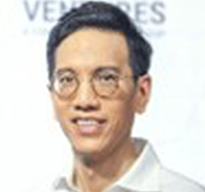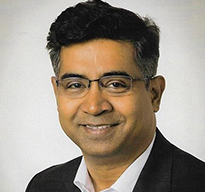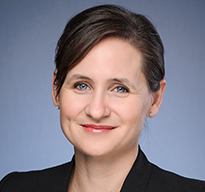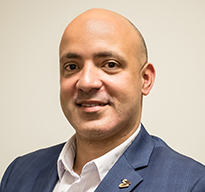Agenda | All times are MYT (UTC +8)
Tuesday, November 24
Keynote Speaker:

Dr John Markus Lervik
Co-Founder and Chief Executive Officer
Cognite
Digital transformation is shaped according to industry-specific needs, process efficiency aspirations and “end-game” visions. Some relate to enablement of People, Technology and Processes, while others invest extra efforts in niche capabilities and value-driven technology. This session will discuss the crucial question: What does it take for a company to be successful in their digital transformation efforts?
The session will feature senior executives from various E&P companies and other industries, who have undergone or are undergoing a digital transformation journey. They will share their strategies, approaches, processes, benefits and lessons learnt. While it prevails that not one size fits all, adoption and replication of best practices (from own industry or other industries) are what make the industry thrive, over a period of time.
Panel Speakers:
Hafiz Azzad Zubir
Head (Operational Excellence)
Center of Excellence Development & Production,
Upstream
PETRONAS

Dr. Thana Slanvetpan
Vice President
attached to President, PTTEP and
General Manager
AI & Robotics Ventures Co. Ltd, a subsidiary company of PTTEP

Amit Mohan
Chief Operating Officer
LCS & LCS Digital (India & South Asia Region)
GE Healthcare
Anand Laxshmivarahan R
Group Chief Digital Officer
Vedanta Limited
Digital infrastructure is defined as the ability to store, process, exchange and serve data through information technology. The key enabling technologies are not limited to the physical assets that are required to operate such as networks, communication, computing and data storage, but also include new information technology infrastructure such as cloud technology, big data technology, 5G and IoT networks; in addition to modern application architectures such as container, API, serverless architecture and so on.
The Digital Infrastructure is not just “an ability”, it is something real that stands behind the digital transformations of economics and business. It is the core of digital transformation. This session will provide insights into cutting-edge information technology and cloud, to ensure a strong foundation can be laid down for digital transformation.
Some of these areas include:
- Cloud technology (Public/Private)
- Data centre, big data technology, no SQL database, graph database
- Modern network and connectivity (5G, IoT)
- Modern application architectures (Container, API, serverless architecture)
- Cybersecurity
Discussion Leaders:
- Open Subsurface Data Universe (OSDU): A Business Transformation Movement,
Ron Clymer, EPAM
- Intelligence Driven Organisations and 3 Horizons Framework,
Osama Hanna, Microsoft
- Xtended Reality in Immersive Spaces for the Oil and Gas Industry,
Dibakar Chakraborty, Halliburton and Benn La Bouchardiere, Igloo Vision
In today’s environment, with an oil price reset and demand erosion due to the pandemic, the industry is looking for novel ways to reduce personal and process safety risk, Non Productive Time (NPT) and unplanned production outages, whilst simultaneously improving returns by driving cost reduction, production optimization and yield improvements. Down-manning in the field, the move to Remote Operations and the subsequent transition to predictive and prescriptive analytics and thereafter to automation are pathways currently actively being explored for all stages in the Life of a Field. Fortunately, recent years have seen significant advances in Machine Learning (ML) and Artificial Intelligence (AI), building on the UAS and IIOT, access to Big Data and Elastic Cloud Computing. Accessing and amalgamating existing data into a holistic and federated data image, enabling Subject Matter Experts of all concerned disciplines to become “Citizen Data Scientists”, focusing their efforts on finding cost-effective solutions, rather than the data, promises to be delivered on the urgent requirements of delivering predictable outcomes for the industry – across the Life of Field and for the entire Production System of the Future, from the reservoir to refinery.
Additionally, in recent years, the combination of HD computer vision-enabled through AI and paired with robots designed for operations in environments hazardous to humans is evolving at a rapid pace, delivering benefits in terms of cost reduction and HS&E improvements. AI-enabled AR/VR is finding its way into collaboration teams as well as the training and education sector.
Discussion Leaders:
-
New Way of Working for Oil & Gas Operation Optimisation, Supha-Kitti Dhadachaipathomphong, PTTEP
-
Improving Well Delivery: Using AI/ML to Find, Predict, and Isolate Drilling Hazards, Ted Furlong, Baker Hughes
-
Innovation at The Edge With AI/ML to Reduce Equipment Downtime, Manage HSE Risks and Enhance Production, Debashis Gupta, Agora, an IoT venture of Schlumberger
-
Online Flow Assurance – A Digital Path Forward, Devina Rawat, Schlumberger
Wednesday, November 25
Office work is the result of the Industrial Revolution. At that time, the machine power was centralised and efficient remote communication was impossible. Factories and offices, therefore, were established in cities. Fast-forward to the 21st century, access to computing power and communication through the internet has become a reality. Knowledge jobs (as we have many in our industry) is more getting paid based on their function and results rather than office hours. The concept of remote working is not new. However, the Covid-19 pandemic imposed the most significant remote working experiment in human history.
It offered us a perfect opportunity to re-think the concept of office work. Shifting to remote working has created far-reaching consequences to both employers and employees. It impacts almost every aspect of our professional and personal lives.
For example:
- Enterprise Culture
- Creativity and Productivity
- Professional Relationships & Young Generation of Professionals
- Work-Life Balance & Mental Health
- Gender Equality and Career Progression
This panel session will share insights of remote work from different perspectives, and to brainstorm on how best to embrace this change in the E&P industry.
Panel Speakers:

Khor Chern Chuen
Chief Operating Officer
SAP South-East Asia

Auragni Jeanson
Asia - Pacific HR Director
Schlumberger-Asia

Kasia Curry
Global Health and Wellbeing Leader
Baker Hughes
In today’s world, companies are adopting more and more digital technology to further enhance their businesses. An organisation must be willing to transform and build a digital culture to fully benefit from digitalisation. People, technology, and process are the main elements in digital transformation, what are the capabilities and skills companies need to equip their discipline workforce to embrace this revolutionary shift. We will share experiences and learn how digital technology could positively support the petroleum industry to efficiently and profitably extract hydrocarbon while maintaining the highest HSE standards. This session will discuss how to change and instil a growth mindset, create digital talent, empower employees, and attract new talent, along with exploring knowledge management, organisational structure management, and change management. We will also delve into the changing work lifestyles, and how to handle shifting cultures in addition to responses from people throughout an organisation.
Discussion Leaders:
- Aligning Organisation Towards Successful Digital Transformation, Joompot Suriyentragorn, PTT Exploration and Production Public Company Limited
-
Adaptive Digital Culture – Success to Digital Transformation, Mousumi Deka, Oil India Limited
-
Digital Fortune Favours the Bold – 4 Distinct Organisation and Culture Moves for O&G Companies to Achieve Escape Velocity, Hari Govindahari, McKinsey and Company
This session will explore how best to manage challenges within the context of E&P business value, and approaches that can be taken to solve them using digital tools. So far, the adoption of ‘digital’ has unlocked significant value across upstream activities for global E&P players. Emerging high-end digital technology is an integral part of how data is analysed.
Examples are becoming more pervasive and their access democratised, driven by accelerated digital transformation, and is not limited to the traditional user base.
As these technologies mature and develop further, companies can unleash a new phase of value generation from understanding and adopting these new technologies:
- Examples of unconventional end-users experimenting with AI/data science tools for data-driven outcomes.
- Empowering the new citizen data scientist to impact their day-to-day performance and overall business value.
- Open Subsurface Data Universe (OSDU): Vendor neutral standards-based ecosystem driving digital innovation.
- The role of information and knowledge management to enable insight generation from new digital tools.
Discussion Leaders:
- Physics Embedded Machine Learning for Modelling and Optimisation of Oil and Gas Assets, Pallav Sarma, Tachyus Inc
- Data-Handling Fundamentals Combined with Business-targeted Goals are Key to Successfully Applying New AI & ML Methods in the Oil Industry, Larry Denver, OVS Group
- Democratise Access to Unstructured Data For Better Decision-Making in Reservoir Engineering Using ML/AI Technologies, Francois Baillard, Iraya Energies
Thursday, November 26
“New Energy” encompasses renewable sources of energy such as solar power, wind power, and geothermal. The primary objectives behind “New Energy” are sustainability, environmental friendliness and compliance, cleanliness and cost-effectiveness. This has also given rise to the concept of “prosumers”; in essence, consumers who are also power producers. Proliferation of prosumers has given rise to Distributed Energy Resources (DERs) and it is a challenge for utilities to manage this complex grid, network and net-billing. “Energy storage” through new advanced types of batteries is also changing energy supply dynamics and making renewable energy competitive.
Oil and gas companies have already undertaken various initiatives to diversify, grow and integrate into the “New Energy” area. Digital technology impacts every function, including capital asset planning and construction, operations and maintenance, human resources and procurement, and commercial aspects such as net-billing and e-Commerce. This panel discussion will bring together industry stalwarts with rich knowledge in New Energy to discuss techno-commercial implications.
Panel Speakers:

Olivier Peyret
President
Schlumberger France
Director
Schlumberger New Energy-Europe

Jeremy O’Brien
Segment Director, Energy
Seequent

Dr. Ghazal Izadi
Global Discipline Lead –
Unconventionals & Geothermal Reservoir
Technical Services
Baker Hughes

Aadrin Azly
Chief Digital Officer
PETRONAS
Energy transition and sustainability is the shift from fossil fuels to more sustainable forms of energy such as wind, solar, and others. This transition is inevitable due to the increasing scarcity of resources as well as to reduce the greenhouse gas emissions, and thus minimise the serious impact towards climate change. This transition is not going to happen overnight and is expected to take up to 30 years, by 2050. For example, the previous transition from wood to coal and from coal to oil and gas took more than 50 years each.
Meanwhile, the world would still be negotiating with the conventional oil and gas industry. Moving forward, the path to energy transition has two major components, and this session will discuss and deliberate on topics such as:
1. Handling the transition from oil and gas to renewals by making the oil and gas industry more responsive to climate change through embracing technologies and steps such as:
- Cutting down on CO2 emissions to achieve zero emissions.
- Maturing new technologies to counter greenhouse effects, such as Carbon Storage, Utilisation and Sequestration (CCUS).
- Developing low-cost, low carbon, and low sulphur fuels.
- Having a carbon pricing/carbon tax mechanism in place.
2. Digital integration along the pathway to renewable energy. With digitalisation being the fourth industrial revolution, it is destined to play a stellar role in the route towards energy transition and sustainability:
- Big data and advance analytics
- Role of Artificial Intelligence
- Blockchain applications in the maturing of renewal energy
Discussion Leaders:
- Technology and Digitalisation as Drivers for the Big Energy Transition, Molyama Kromah, BP India
- Carbon Capture Storage and Utilisation Solutions - Powering the Sustainability Agenda, Shridevi Bale, Accenture
This session will reflect on the current environment – the oil price reset, the demand erosion due to the pandemic, and how the industry is finding novel ways to survive and thrive. Whilst “Digital Transformation” is gaining traction with many operators and service providers, it is important to note that digital readiness, digital capability, and the ability to deploy digital solutions at production scale vary significantly, from upstream to downstream sectors. However, there is a common belief identified: the need to transform existing data into value.
With the industry facing a ‘call to action’ to develop smarter systems and AI-assisted decision-making process, more and more companies are measuring production and business value through the context of reducing costs and risks and improving efficiency across the entire value chain.
Given the challenges and opportunities at hand, the industry requires a unique combination of competencies, skillsets, and capabilities that no single technology or service provider company can deliver. Thus, over the last year or so, we have witnessed a number of press releases on the formation of “strategic partnerships” between operators, oil field service companies, cloud providers, instrumentation and automation specialists, established and start-up ML and AI providers and more. This session will take a closer look at why such strategic partnerships matter and evaluate the cornerstones of success.
- Strategic Partnerships – A Condition For Success In Today’s Digital Era,
Ricky Kapur, Microsoft - The Opportunity for Technology Collaboration in O&G, Ahmed El Sherbini Ibrahim, VP BHC3 APAC, Baker Hughes
- E&P Digital Ecosystem: The Importance of Strategic Partnerships, Riddhi Tody, Halliburton
Panel Speakers:

Ahmed El Sherbini Ibrahim
Vice President
BHC3 APAC
Baker Hughes

Abhik Chatterjee
Managing Director
Boston Consulting Group (BCG)

Riddhi Tody
Global Discipline Lead –
Regional Technical Advisor
Landmark
Halliburton

Ricky Kapur
Vice President
Sales, Marketing and Services Group, Asia Pacific
Microsoft
